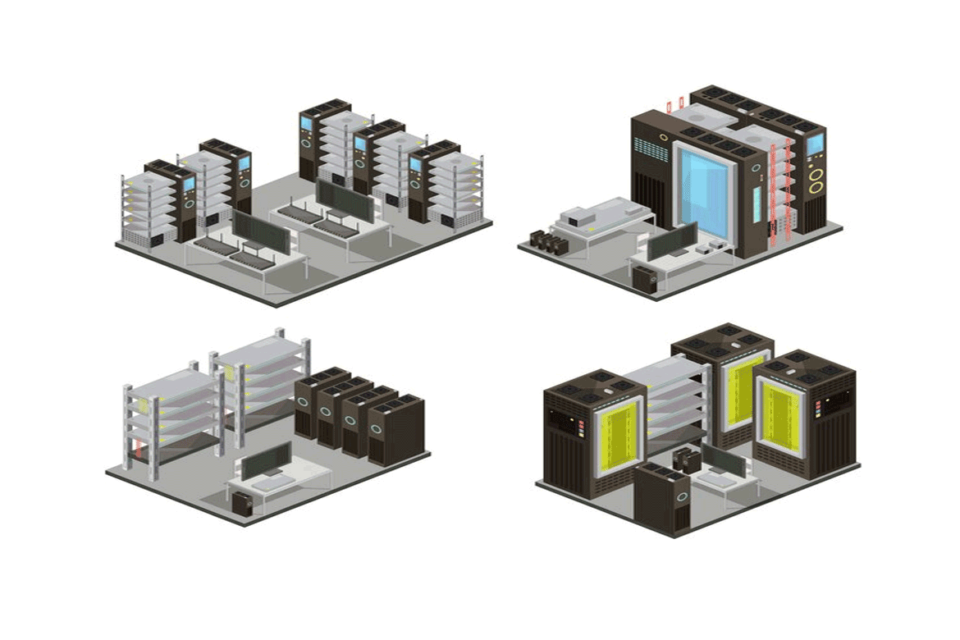The article’s focus is on modular UPS design and its increasing importance in power management.
As our world and its technologies undergo constant transformation, the demand for effective power solutions has grown in importance. One strategy that has gained considerable popularity in today’s fast-paced climate is modular design, which is why industries are always looking for new ways to streamline their operations. Power solutions that adhere to modular design principles offer numerous advantages to businesses, including increased adaptability, scalability, and efficiency. In this article, we explore the realm of modular design power solutions, which lead industries into a more sustainable and future-proof era by revolutionizing how we address power needs.
Power Management’s New Modular UPS Design
A paradigm shift has occurred in power management with the advent of modular uninterruptible power supply (UPS) systems in the last several years. In the past, power systems were designed in a monolithic fashion, with key loads being supplied by a single massive UPS unit. But with modularity, you may set up a system of smaller, autonomous modular UPS designs that communicate with one another to supply loads with electricity. When compared to the conventional method, this modular architecture has many benefits.
The primary benefit of modular UPS systems is the increased adaptability they provide. Any changes or improvements to a conventional monolithic UPS would necessitate a whole unit replacement, which would cause considerable inconvenience and delay. A modular UPS, on the other hand, makes expansion a breeze. You can add or remove additional UPS modules as needed without worrying about the power going out. Industries with unpredictable power demands greatly benefit from this adaptability since it allows them to meet fluctuating demands with ease.
In addition, modular UPS systems don’t break the bank. Companies typically find that when purchasing a traditional UPS, they need to go bigger than what their power needs are now in order to accommodate any increases in demand. This leads to excessive upfront costs and greater energy use. However, businesses can avoid overspending by using modular UPS systems, which allow them to adjust the power capacity to their exact needs. Because it is possible to service or replace individual modules without affecting the whole system, maintenance expenses are also reduced.
In conclusion, the emergence of modular UPS systems has opened up new options in power management. This design approach’s versatility, scalability, and cost-effectiveness make modular UPS systems an attractive alternative for industries seeking efficient power solutions. Modular UPS systems are likely to remain in high demand as long as technology and power needs are dynamic.
Benefits and Applications of Modular UPS Design
Modular UPS systems offer multiple benefits and have various applications in different industries. One of the primary advantages of modular UPS systems is their versatility. These systems comprise numerous modules that provide power simultaneously, allowing for easy scaling and modification. As power demands expand or vary, additional modules can be added to the system, ensuring a dependable and uninterrupted power supply.
Another feature of modular UPS systems is their high availability. In a traditional modular UPS design, the entire system can be at risk if a single module fails. However, in modular UPS systems, the failure of one module does not effect the operation of the others. This modular redundancy assures that there is no single point of failure, considerably enhancing the system’s overall resilience.
Furthermore, modular UPS systems are cost-effective compared to standard UPS systems. Companies often invest in extra capacity with traditional systems to handle potential future development. However, this approach might be costly as the surplus capacity may remain underutilized for an extended period. Modular UPS systems allow organizations to grow their power capacity as needed without investing in superfluous resources. This cost-effectiveness makes modular UPS systems practicable for industries with dynamic power requirements, such as data centres, manufacturing facilities, and healthcare institutions.
Overall, the features and applications of modular UPS systems make them useful power solutions for today’s fast-paced and ever-changing industries. These systems’ flexibility, scalability, high availability, and cost-effectiveness contribute to better operational efficiency and assure a constant power supply, even in the most demanding conditions.
Case Study: How Modular UPS Revolutionized Power Supply
The case study titled “How Modular UPS Revolutionized Power Supply” focuses on the major impact of adopting modular design concepts into power solutions. With the ever-increasing improvements in technology, efficient power solutions have become crucial. Modular design offers several benefits, including greater flexibility, scalability, and cost-effectiveness. Industries functioning in fast-paced environments continuously hunt for inventive methods to enhance their operations, making modular power solutions suitable.
Modular design enables the easy integration and expansion of power systems, making them very versatile. As businesses grow, their power requirements also increase. By employing modular UPS (uninterruptible power supply) solutions, firms can easily grow their power supply without incurring major expenses or delays to their operations. The flexibility to add or remove modules based on the changing demands of an organization provides a level of versatility that traditional power solutions cannot match.
Additionally, modular UPS systems offer enhanced efficiency and cost-effectiveness. These systems enable individual module monitoring and maintenance, ensuring that only the necessary modules are functioning and avoiding energy waste. Reduced energy use lowers operational expenses and contributes to a greener and more sustainable environment. Furthermore, the adaptability of these power solutions enables faster and easier repairs or upgrades, saving both time and money for organizations.
Overall, the introduction of modular design ideas in power solutions has changed the power supply business. Modular UPS systems have become a game-changer for sectors demanding efficient power management by delivering greater flexibility, scalability, and cost-effectiveness. With the ever-increasing demand for reliable and sustainable power solutions, the modular design approach continues to pave the way for innovative breakthroughs in the area.
Read More Articles :
Ten Ideas to Increase Facebook Interaction
Webmail the Managed Internet Service
UI/UX Design’s Place in Advertising
Benefits of Outsourcing Fulfillment to a 3PL
